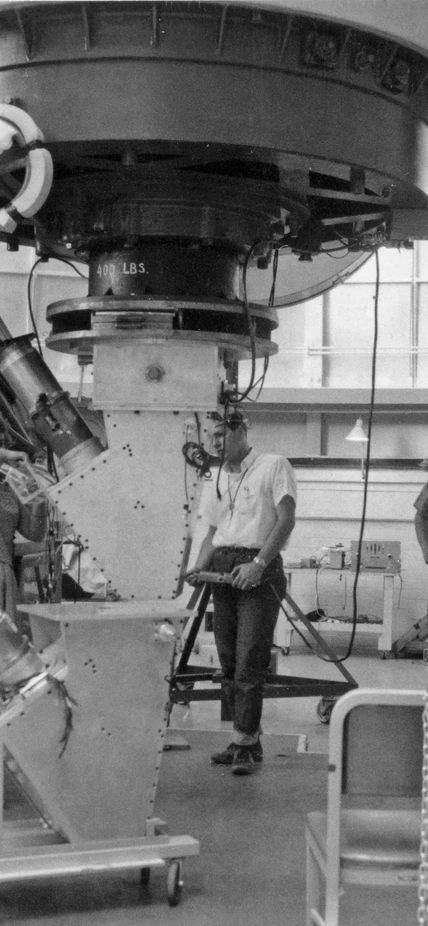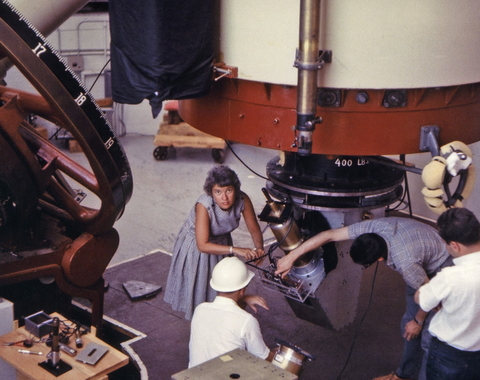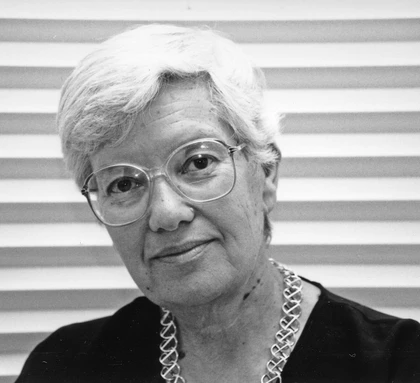
Vera Rubin was a pioneering Carnegie Science astronomer whose research confirmed the existence of dark matter, forever changing the field of astronomy and our understanding of the universe. A passionate scientist and champion for women in science, Rubin’s powerful words offer insight not only about the cosmos, but about perseverance, curiosity, and the wonder of discovery. Famous quotes by Vera Rubin continue to inspire scientists and dreamers alike.
Here are 10 of our all-time favorite quotes from “Mother of Dark Matter” Vera Rubin.
“My life has been an interesting voyage. I became an astronomer because I could not imagine living on Earth and not trying to understand how the universe works.”
- Vera Rubin in “An Interesting Voyage,” Annual Review of Astronomy and Astrophysics, 49:1-28, 2011
“By about age 12, I would prefer to stay up and watch the stars than go to sleep. I started learning. I started going to the library and reading. But it was initially just watching the stars from my bedroom that I really did. There was just nothing as interesting in my life as watching the stars every night.”
- Vera Rubin in an interview conducted by Alan P. Lightman on 3 April 1989, Niels Bohr Library & Archives
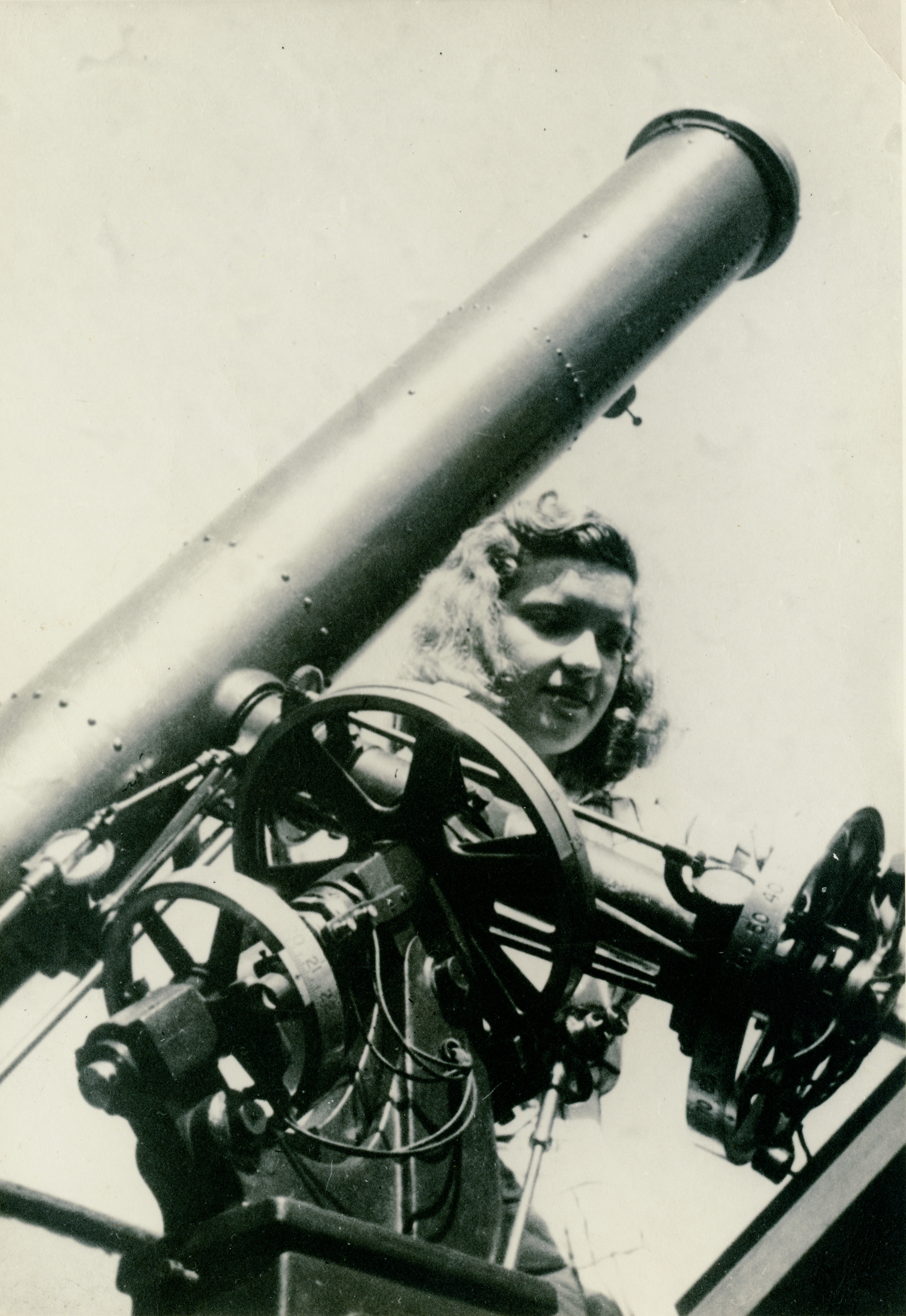
“I insisted on working on problems outside the mainstream of astronomy so that I could work at my own pace and not be pressured by bandwagons. I do not offer this as an example for you, but only to show that there can be diverse approaches to science. There must be. I hope some of you will be able to devise your own paths through the complex sociology of science. Science is competitive, aggressive, demanding. It is also imaginative, inspiring, uplifting. You can do it, too.”
- Vera Rubin in “Where in the World is Berkeley,” Graduation address to University of California, Berkeley class of 1996 published in Bright Galaxies, Dark Matters, p. 219
“The most important feature of any telescope is the imagination with which it is used.”
- Vera Rubin in “The Dedication of the Vatican Telescope,” 1993 address published in Bright Galaxies, Dark Matters, p. 80
“The conclusion is inescapable that non-luminous matter exists beyond the optical galaxy.”
- Vera Rubin in “Rotational properties of 21 SC galaxies with a large range of luminosities and radii, from NGC 4605 (R=4kpc) to UGC 2885 (R=122kpc),” The Astrophysical Journal, 238:471-487, 1980

“In a spiral galaxy, the ratio of dark-to-light matter is about a factor of ten. That's probably a good number for the ratio of our ignorance to knowledge. We're out of kindergarten, but only in about third grade.”
- Vera Rubin in “A Century of Galaxy Spectroscopy,” The Astrophysical Journal, 451:419-428, 1995
“We have peered into a new world and have seen that it is more mysterious and more complex than we had imagined. Still more mysteries of the universe remain hidden. Their discovery awaits the adventurous scientists of the future. I like it this way.”
- Vera Rubin in Bright Galaxies, Dark Matters, preface, p. xiii
“I live and work with three basic assumptions: 1) There is no problem in science that can be solved by a man that cannot be solved by a woman. 2) Worldwide, half of all brains are in women. 3) We all need permission to do science, but, for reasons that are deeply ingrained in history, this permission is more often given to men than to women.”
- Vera Rubin in “Opening the Doors,” 1990 talk published in Bright Galaxies, Dark Matter, p. 174
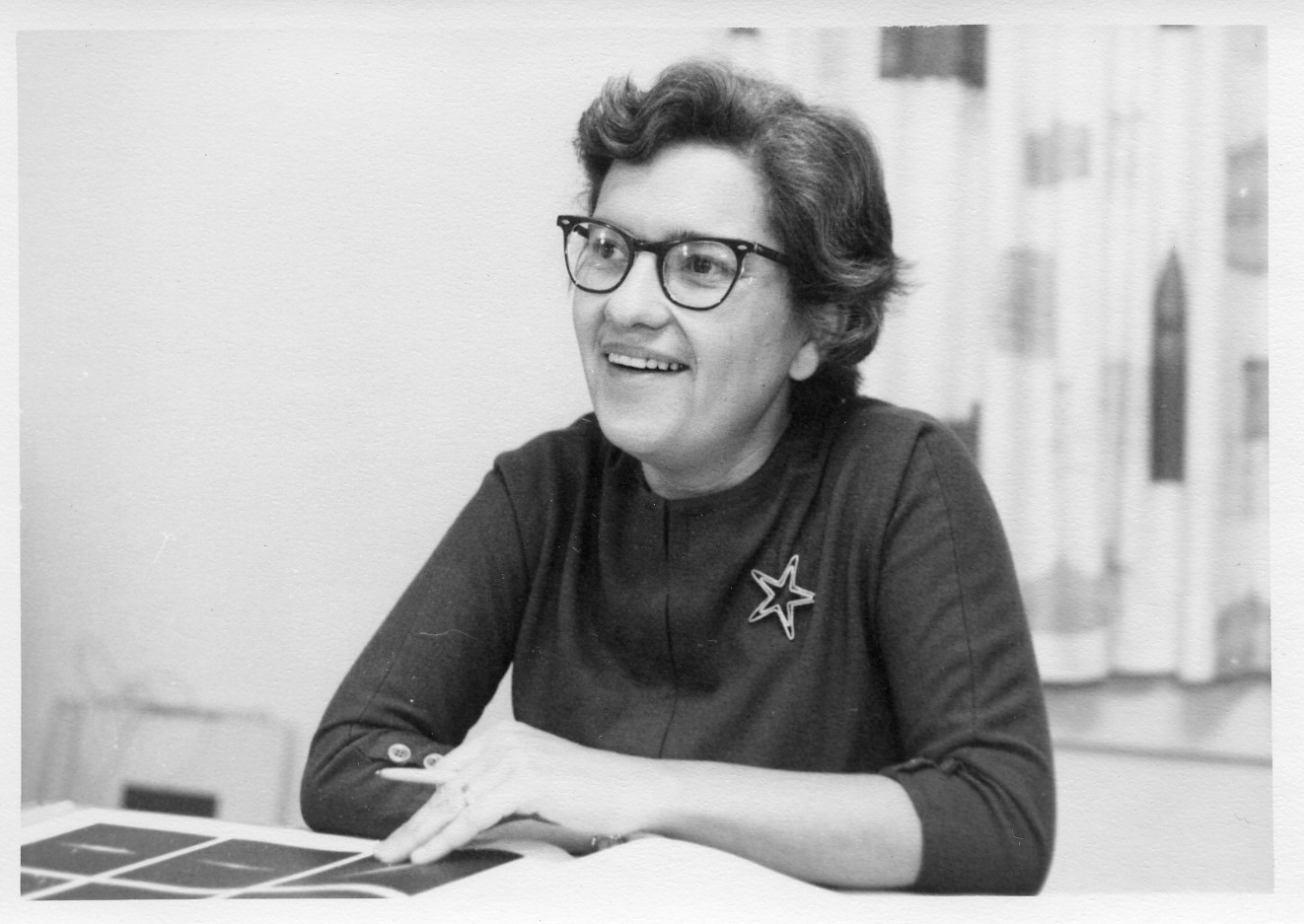
“Don’t let anyone keep you down for silly reasons such as who you are. And don’t worry about prizes and fame. The real prize is finding something new out there.”
- Vera Rubin as recollected by Rebecca Oppenheimer of the American Museum of Natural History
“Each one of you can change the world, for you are made of star stuff, and you are connected to the universe.”
- Vera Rubin in “Where in the World is Berkeley,” Graduation address to University of California, Berkeley class of 1996 published in Bright Galaxies, Dark Matters, p. 219
Vera Rubin provided the first observational evidence that supported of the existence of dark matter—the invisible material that makes up more than 80 percent of the mass of the universe.
In 1965, Vera Rubin wasn’t just watching history unfold; she was making it—pioneering our understanding of the universe while shattering barriers for women in science.
